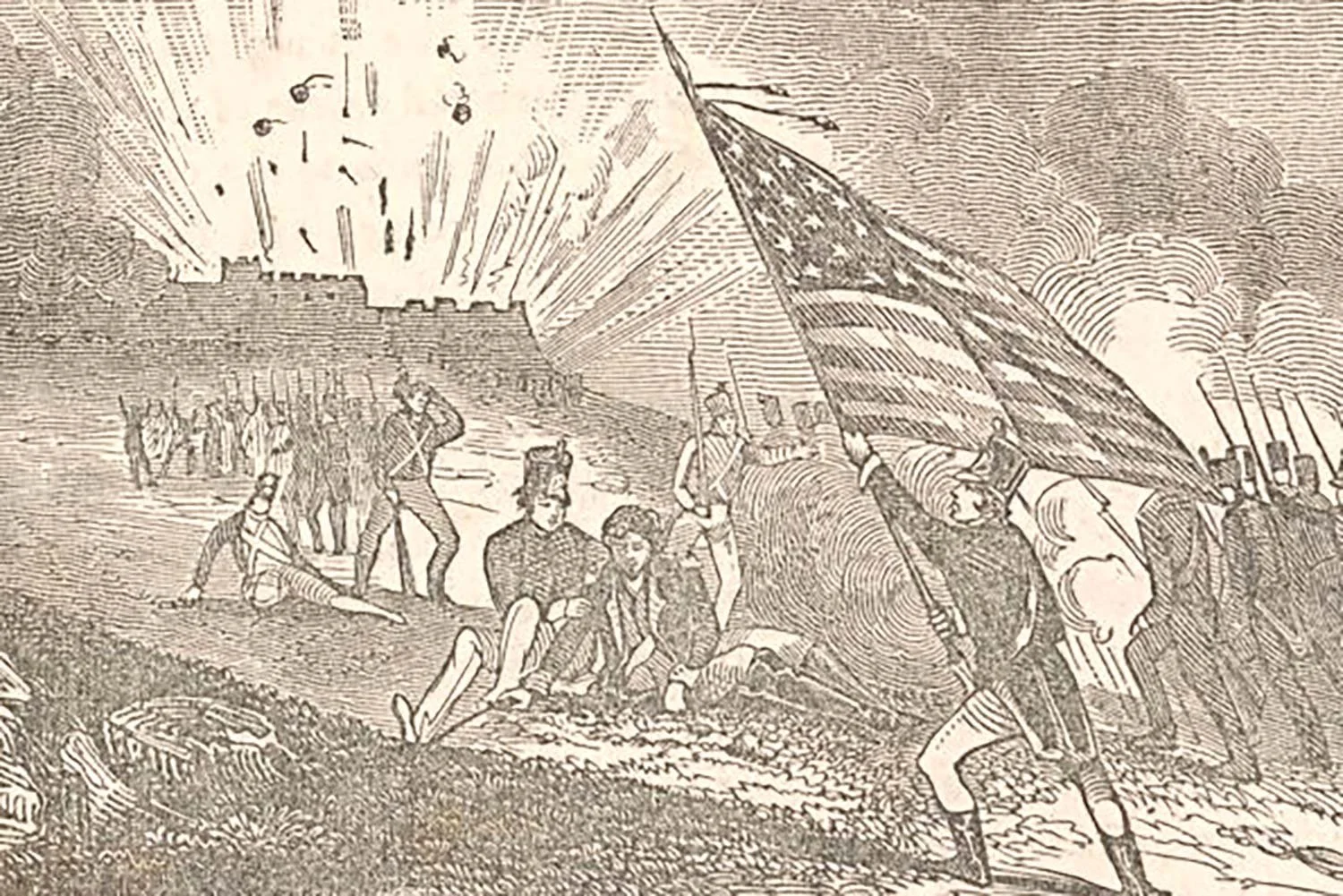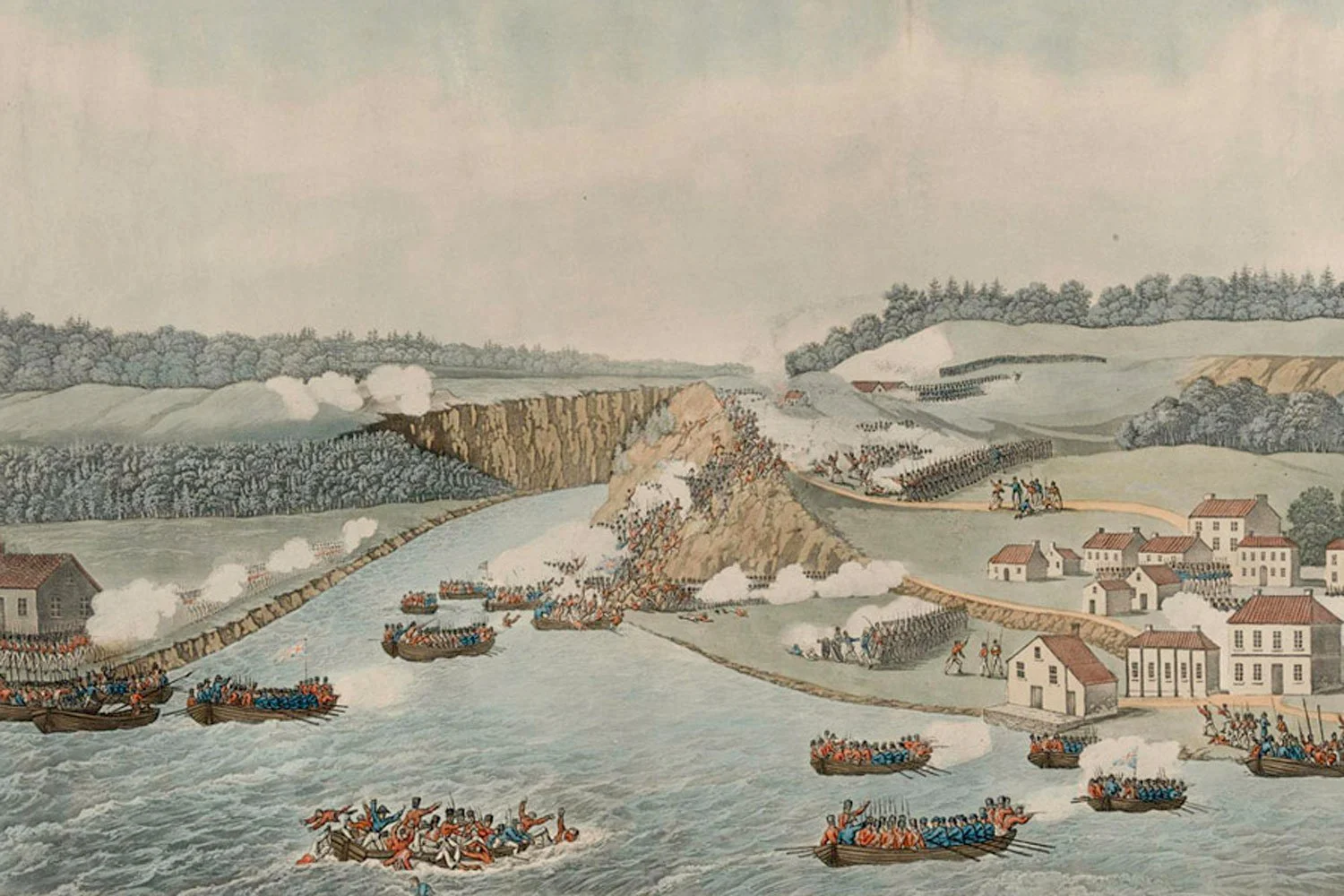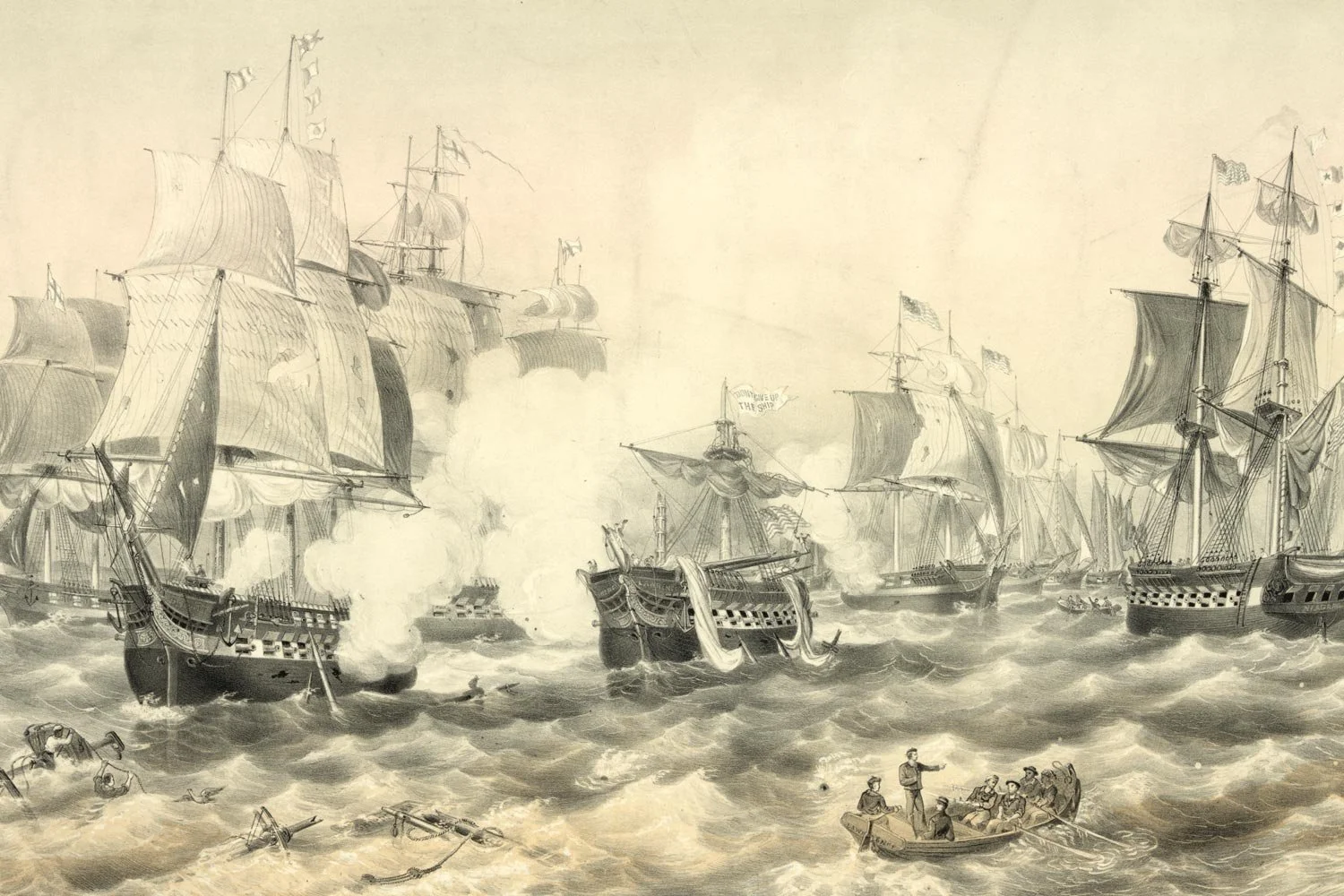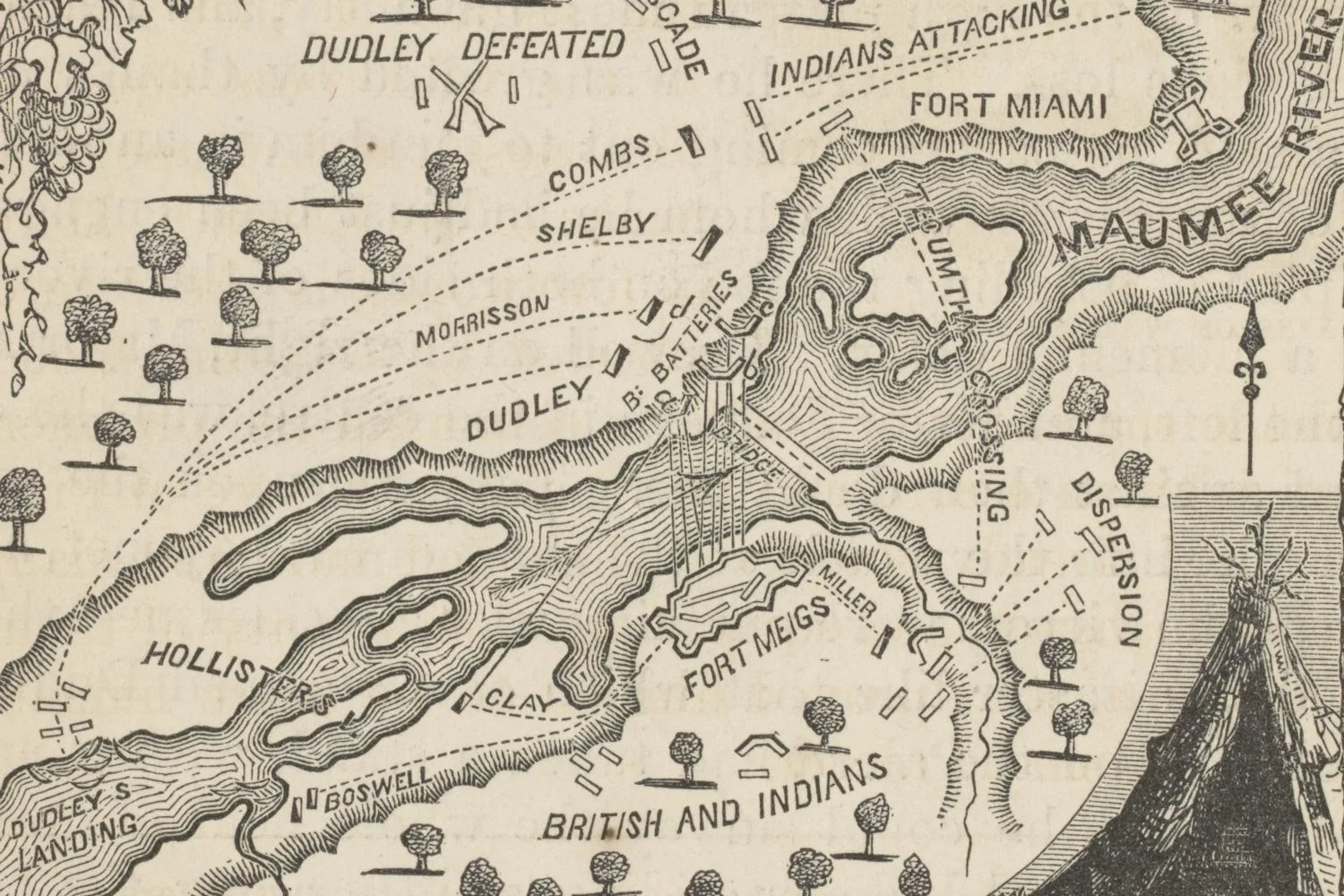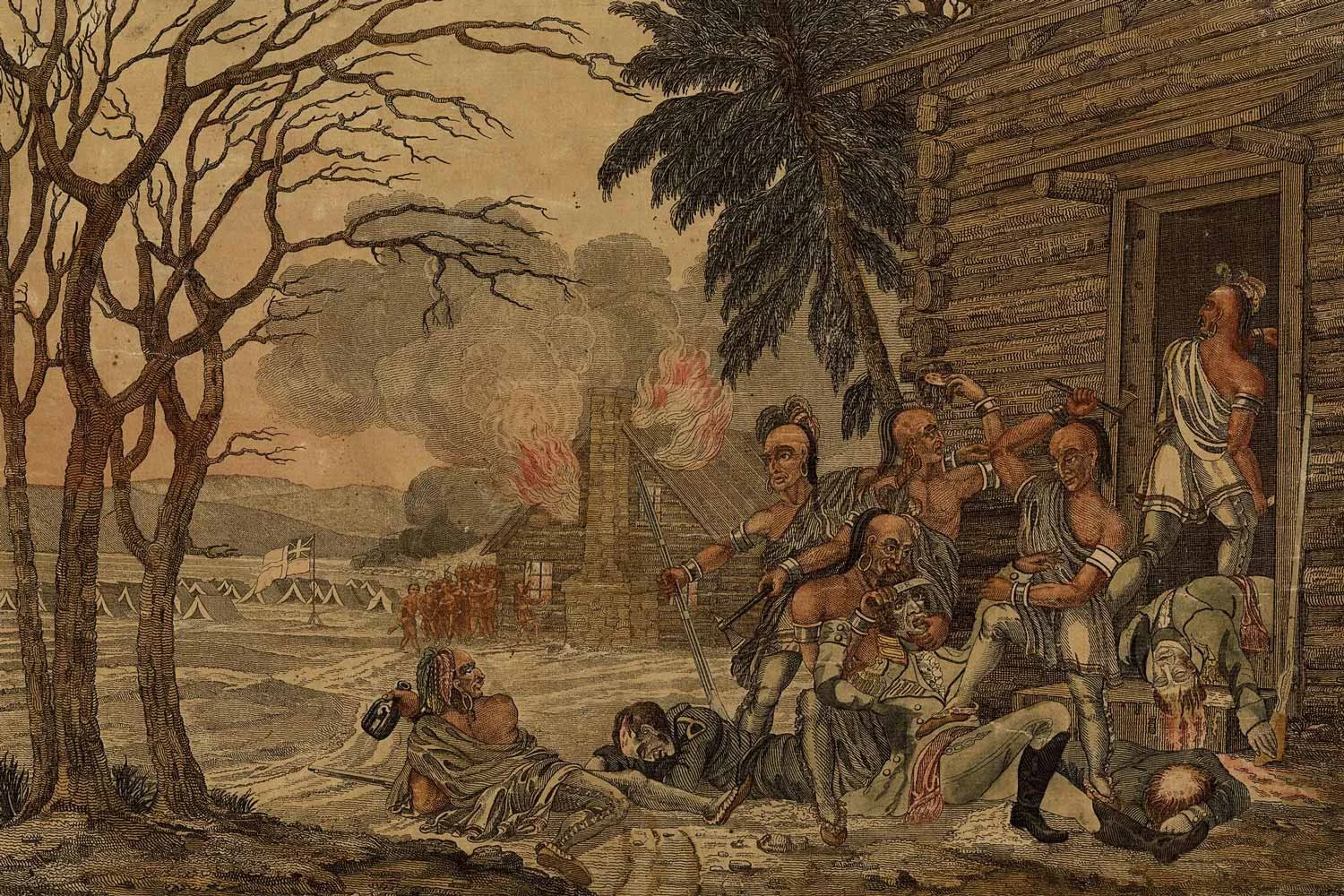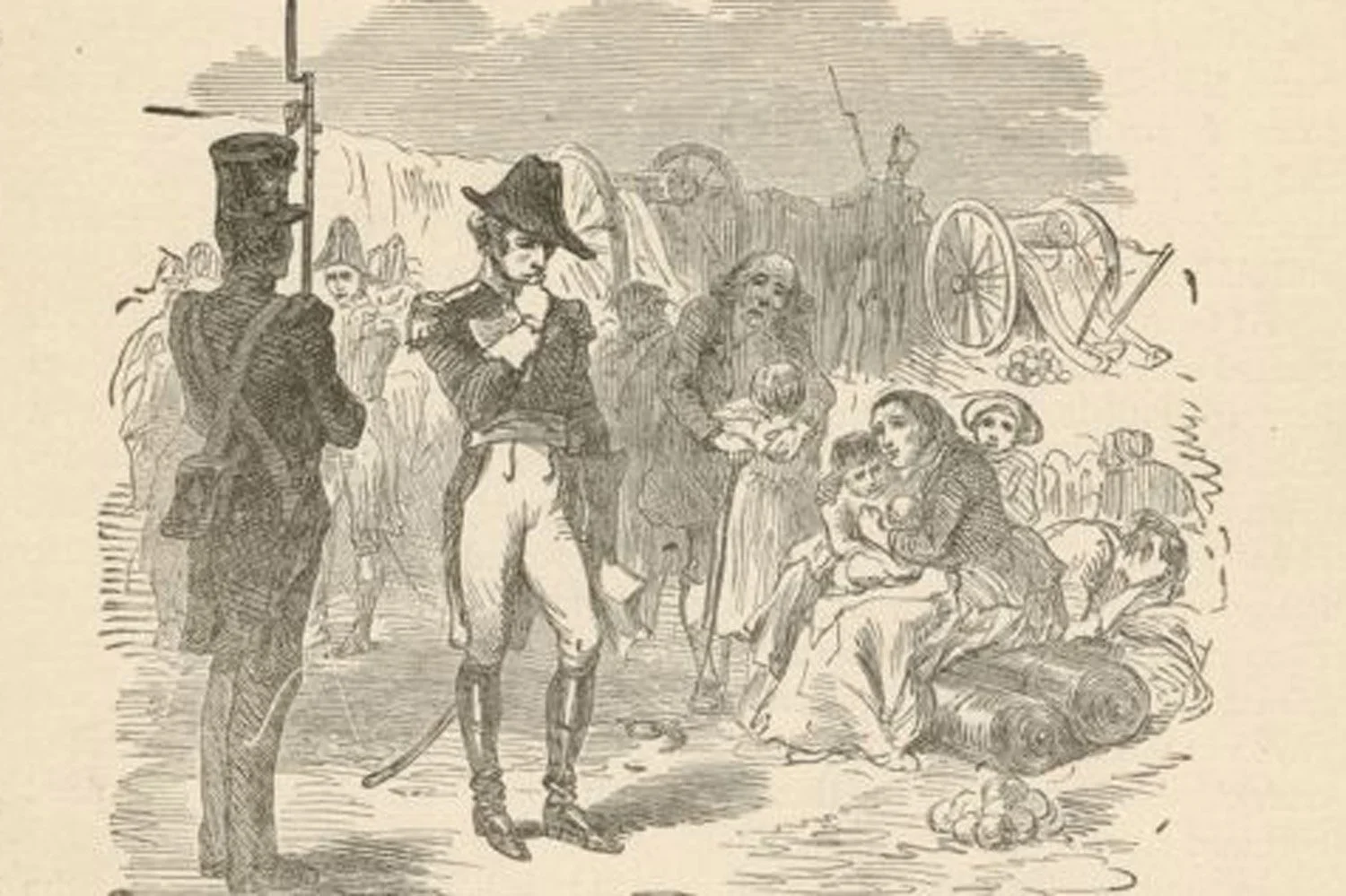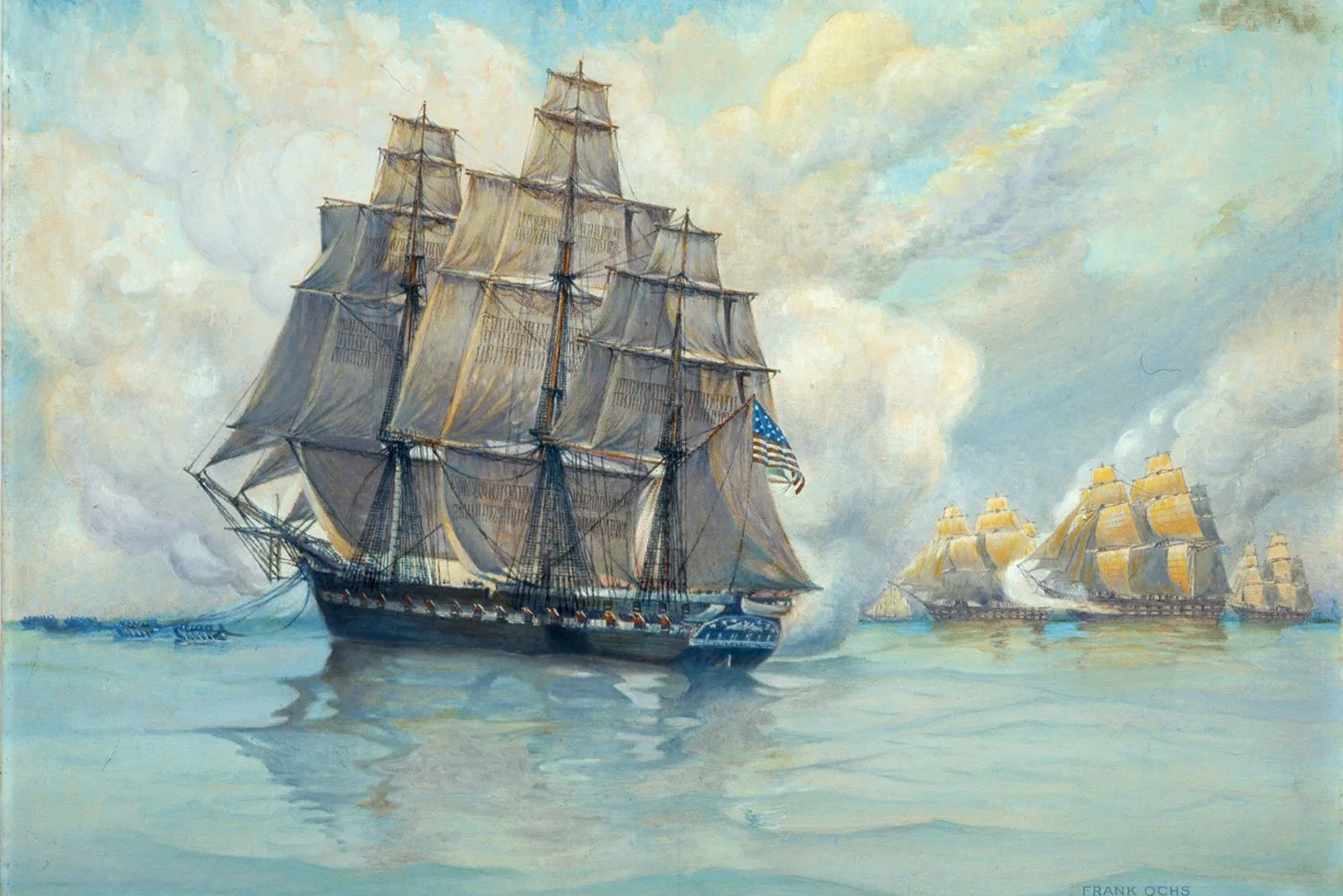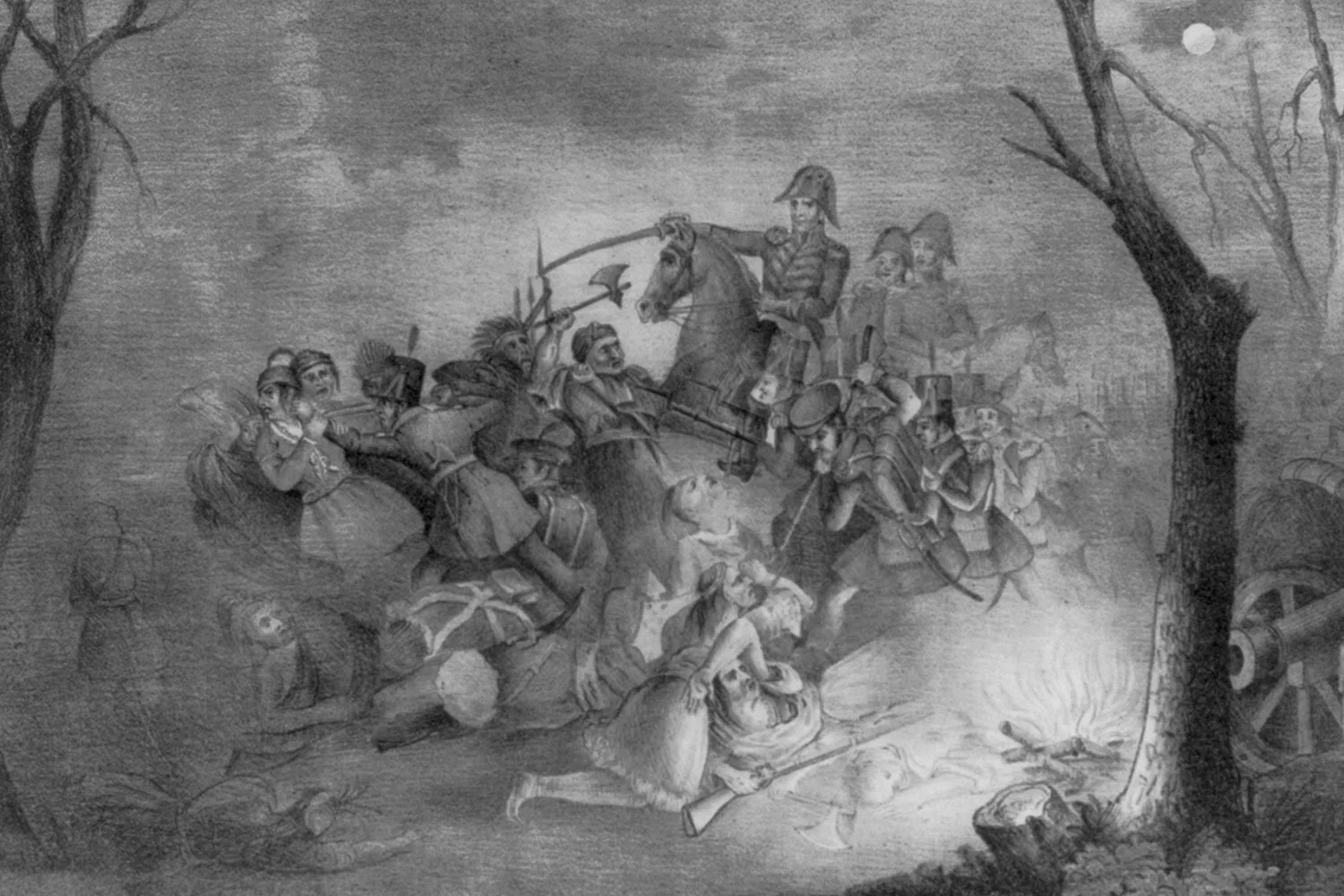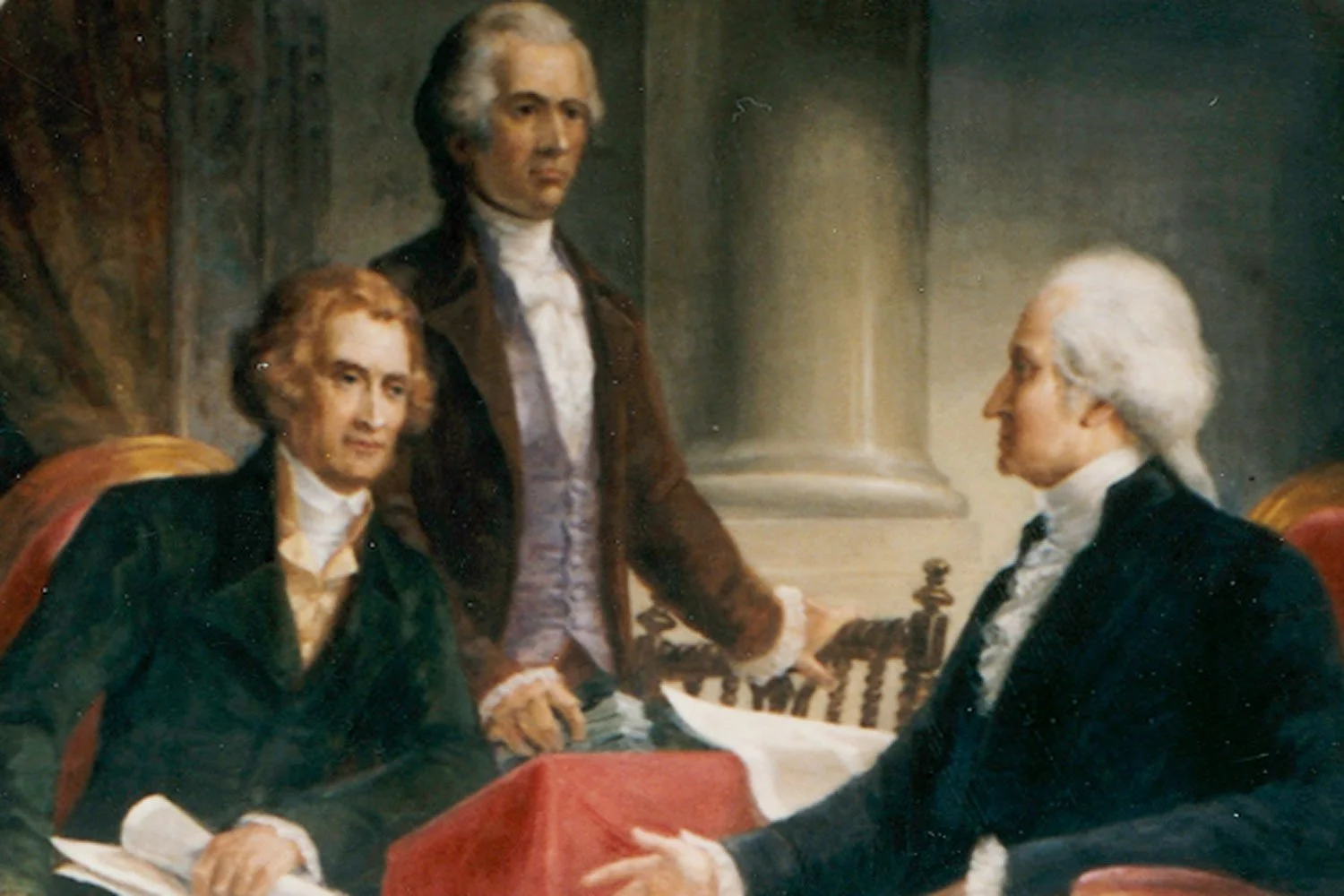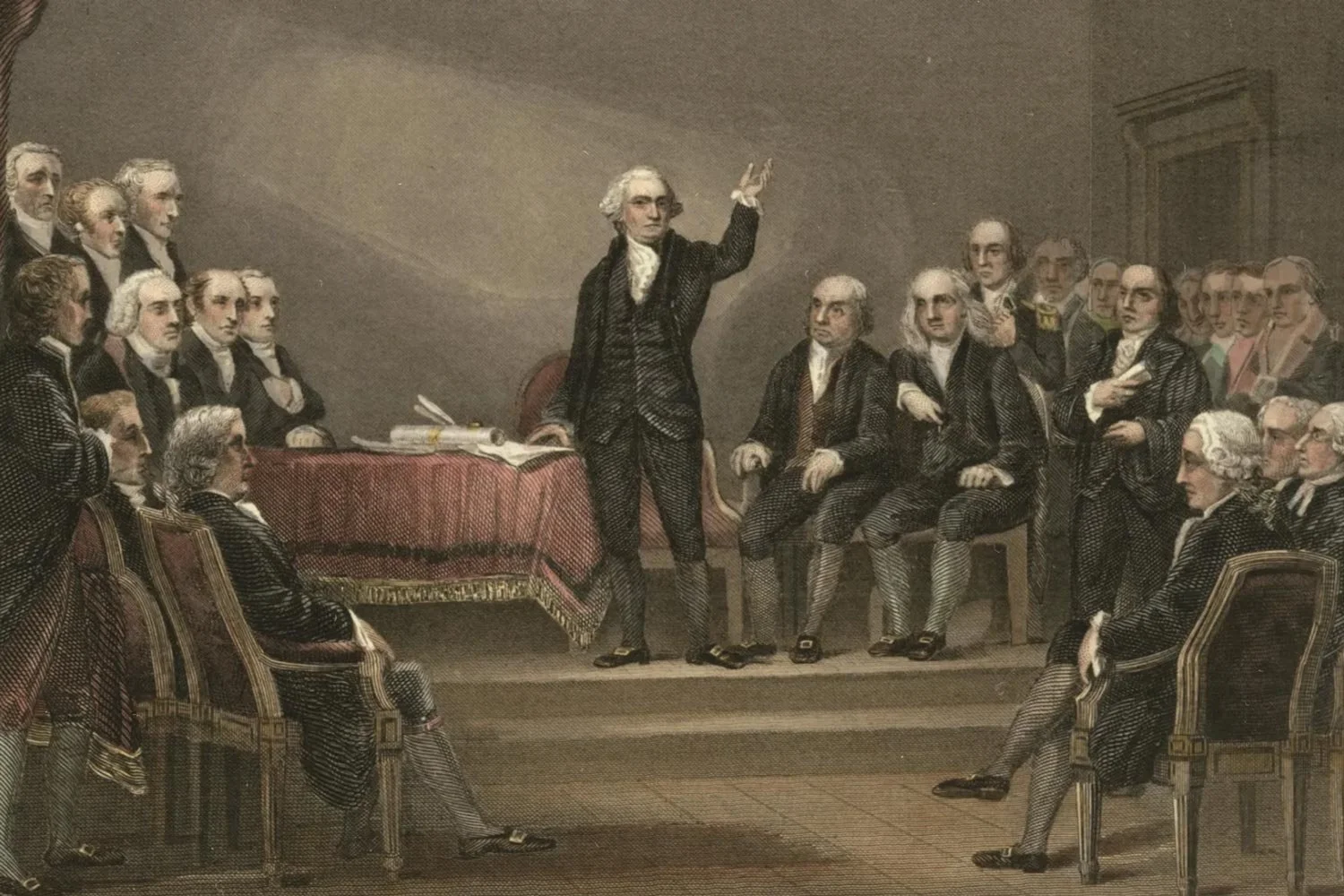War of 1812, Part 8: Americans Burn a Capital
President James Madison assigned Henry Dearborn the right wing of the three-pronged American invasion of Canada, up Lake Champlain to the St. Lawrence River and then onward to Montreal. Arguably, this invasion sector was the most critical, as the St. Lawrence represented the only means of communication between Lower Canada and Upper Canada. In late April 1813, Dearborn and Commodore Isaac Chauncey, commander of the American fleet on Lake Ontario, sailed with 1,700 men from Sackett’s Harbor, arriving at York, the capital of Upper Canada. The Americans landed at 8 a.m. and, by late morning, the British recognized they could not hold the town and withdrew across the Don River. But prior to leaving, the British rigged the powder magazine, which held 74 tons of iron shells and 300 barrels of gunpowder, to explode rather than let it fall into American hands. Around 1 p.m. the charge denoted and beams, metal, and stone from the magazine flew off in every direction, killing or wounding over 200 Americans and nearly as many Brits. Angered by the explosion, the Americans set fire to the town’s public buildings.
War of 1812, Part 7: Disaster at Queenston Heights
The center thrust of the three-prong American invasion of Canada was along the Niagara River frontier, a thirty-five-mile stretch that would be the most contested piece of real estate during the War of 1812. Command of this sector was entrusted to General Stephen van Rensselaer, who established his headquarters at Lewiston, New York, directly across the Niagara River from Queenston, Upper Canada. On October 13, 1812, van Rensselaer sent Captain John Wool, a recently commissioned officer, and Colonel Solomon van Rensselaer, the general's nephew, across the river to capture Queenston. British General Isaac Brock arrived with reinforcements and led a counterattack but was mortally wounded and the British attack faltered. American reinforcements led by Lieutenant Colonel Winfield Scott also arrived and dug in to secure their position. However, soldiers refusing to leave American soil would soon lead to disaster.
War of 1812, Part 6: The Battle of the Thames
With Captain Oliver Hazard Perry's great victory on Lake Erie, General William Henry Harrison knew the time had finally come for the invasion of Upper Canada. On September 27, 1813, Captain Perry’s fleet transported Harrison’s army across the lake to the Canadian shore, three miles below Fort Malden. To oppose the American force, British General Henry Proctor commanded an army of 400 regulars and approximately 3,000 Indians. But Proctor was a cautious man and retreated east up the Thames River valley to the disgust of Tecumseh and his warriors, many of whom returned home rather than join in the retreat. Proctor halted his retreat on October 5 and drew up his dwindling army, consisting of just 400 regulars and 500 Indians, in line of battle adjacent to the Thames River just west of Moraviantown. Upon observing the thin British line, General Harrison opened the assault with a mounted charge, and the fury of the American assault quickly broke the British line.
War of 1812, Part 5: We Have Met the Enemy
The key to controlling Upper Canada in the War of 1812 was gaining naval mastery of the Great Lakes. Secretary of the Navy William Jones appointed Oliver Hazard Perry to command the American fleet on Lake Erie. His adversary was Captain Robert Barclay, whose fleet consisted of six ships, the largest of which was the Detroit with nineteen guns and the Queen Charlotte with seventeen guns. In comparison, Perry’s fleet consisted of nine warships, including two twenty-gun brigs: the Lawrence, which Perry named his flagship, and the Niagara, which Perry assigned to Captain Jesse Elliott. On September 10, 1813, just before noon, the British long guns on the Detroit opened the engagement and Perry gave the order to close with the enemy.
War of 1812, Part 4: British Invade Ohio
Following the American disaster at Frenchtown, General William Henry Harrison, gathered another force to turn the tide in the west. In February, Harrison tasked Major Eleazer Wood to construct Fort Meigs on the banks of the Maumee River. On May 1, a British army including 1,000 regulars and militia under General Henry Proctor and 1,500 Indians led by Tecumseh initiated a siege of Fort Meigs. After pounding the fort with artillery for four days, Proctor sent in a demand that Harrison surrender the fort or face the consequences. Despite outnumbering the Americans, Proctor lost heart and abandoned the siege, retreating to Fort Malden. But he returned to Fort Meigs in July with a larger force including 400 regulars and 3,000 Indians. After failing to lure the Americans from the safety of the fort, Proctor called off the attack and took his force up the Sandusky River to Fort Stephenson which appeared to be an easier target.
War of 1812, Part 3: Debacle on the River Raisin
Following the surrender of Detroit, William Henry Harrison, governor of the Indiana Territory, was named as Hull’s replacement. Harrison consolidated his army at the Maumee Rapids and planned to move on Detroit in the spring. But in mid-January 1813, General James Winchester, one of Harrison’s officers, received word that Frenchtown, a small village thirty miles north on the River Raisin, was in danger of being attacked. Although Harrison had instructed Winchester not to advance beyond their base camp, Winchester felt compelled to respond. Winchester laid out his camp with Kentucky militiamen behind a split rail fence on the left but the regulars on the right were completely exposed with no cover to their front. Importantly, Winchester failed to send out scouts to keep an eye on the British. Undetected by the Americans, the British attacked at dawn on January 22.
War of 1812, Part 2: The Surrender of Detroit
President James Madison named William Hull, governor of the Michigan Territory, to command the western war effort in the War of 1812. Hull’s primary mission was to capture Fort Malden, the main British outpost in the region. Hull’s task was formidable for several reasons, but primarily because his supply line stretched for 200 trackless miles through hostile Indian country. Hull arrived at Detroit on July 5 and, one week later, crossed his army into Canada and moved south to capture Fort Malden. While waiting for his field guns to arrive to commence the assault, Hull received the disturbing news that Fort Mackinac had been captured by the British, meaning that several thousand Indians who had participated in that attack would soon be coming down from the north. On August 15, General Isaac Brock, governor of Ontario, appeared with 1,500 men on the opposite bank of the Detroit River and demanded Hull’s surrender.
War of 1812, Part 1: A Divided America Goes to War
In June of 1812, President James Madison asked Congress to declare war on Great Britain for refusing to honor American maritime rights. Madison’s hand was forced by the young firebrands who made up the Twelfth Congress. Support for the war was not unanimous, as New England, dominated by Federalists, strongly opposed the conflict. But to the Democratic-Republicans, Canada seemed an easy conquest, with Thomas Jefferson stating that “the acquisition of Canada…will be a mere matter of marching.” When the vote on Madison’s request was taken on June 18, 1812, it was the closest in our country’s history on a declaration of war.
Road to War, Part 10: The Battle of Tippecanoe
On September 24, 1811, General William Henry Harrison, governor of the Indiana Territory, led an army north from the territorial capital of Vincennes. His objective was to break up a large gathering of Indians that were part of a confederacy organized by Tecumseh to resist American settlement in the Ohio Country. Although advised by his officers to immediately strike the village, Harrison was under strict orders from Secretary of War William Eustis to maintain peace if possible and not initiate an attack. Tecumseh happened to be away recruiting southern tribes for his confederacy so the responsibility for dealing with the American army fell to the Prophet. Although prior to leaving Tecumseh had stressed that a battle was to be avoided at all costs, the Prophet felt he must do something.
Road to War, Part 9: Tecumseh and the Prophet
Tecumseh’s War was the last great Indian war in the Northwest Territory and raged from 1811 to 1817. Tecumseh was a Shawnee born in 1768 in today’s central Ohio. By the late 1780s, Tecumseh began participating in raids into Kentucky and fought at the 1794 Battle of Fallen Timbers. Despite Tecumseh’s prowess, he may have remained unknown to history were it not for his brother Tenskwatawa, better known as the Prophet, who rose to prominence in 1805 following a series of visions. Part of the reason why the Prophet’s message resonated so well with Indians in the Great Lakes region was their growing frustration over repeated land cession treaties between willing chiefs and the United States.
Road to War, Part 8: The Fifty-Year War for the Old Northwest
At the conclusion of the French and Indian War in 1763, the British gained possession of all French lands in North America, including the Northwest Territory, which was then part of Canada. Unlike the French who allied themselves with the Indian nations, the British treated the natives as a conquered people and for the next fifty years there was continuous conflict between white settlers and Indians in this region.
Road to War, Part 7: Madison Changes Sides
In February 1789, James Madison was elected to the House of Representatives for the first Congress under the Constitution. Besides leading the House, Madison helped shape the Washington administration, drafting President Washington’s inaugural address and recommending Alexander Hamilton for Secretary of the Treasury and Thomas Jefferson for Secretary of State. But a break soon developed between the Madison-Jefferson faction, known as Democratic-Republicans, and Washington’s Federalist administration over Hamilton's plan for the national government to assume state debt incurred during the war.
Road to War, Part 6: James Madison, Father of the Constitution
In 1787, James Madison and Alexander Hamilton organized the Constitutional Convention not simply to fix flaws in the Articles of Confederation but rather to create a new vibrant national government under which the United States could flourish. The most critical issue to be resolved was how representation in Congress would be determined, for with more representatives came more power. Madison’s Virginia Plan comprised fifteen resolutions that became the basis for our constitution and called for representation according to population in both the House and the Senate. After the convention, Madison, along with Alexander Hamilton and John Jay, drafted eighty-five essays known as The Federalist Papers, the greatest collection of writings ever on a federal constitutional government. No other Founding Father played such an outsized role in creating our nation’s Constitution.
Road to War, Part 5: James Madison Embraces the American Cause
In 1774, Parliament passed the Coercive Acts, which effectively shut down the city of Boston and revoked the historic charter of Massachusetts, replacing it with royal authority. This affront to the liberties of American colonists greatly troubled Madison and pushed him into the camp of American separatists, and it was here that Madison found his true calling and to which he would devote the rest of his life. Madison was elected to the Confederation Congress, where his brilliant mind and extraordinary work ethic soon gained the young Virginian the admiration of his fellow congressmen and made him a leader in the national assembly.
Road to War, Part 4: The Early Life of James Madison
James Madison was one of our nation’s most important founding fathers and played a critical role in the shaping United States. Known to history as the “Father of the Constitution,” Madison’s brilliant mind was among the finest the nation has ever produced and his grasp of the theories of republican government and his efforts to implement those theories were unparalleled.
Road to War, Part 3: President Jefferson Declares Economic War
When the Democratic-Republicans came to power in 1800, the Jefferson administration effectively shut down and disbanded both the United States Army and Navy. As a result, when American merchant ships were illegally seized as contraband of war by both the British and the French during the Napoleonic wars, the United States was helpless to respond. Consequently, President Jefferson, who was philosophically opposed to war, decided to strike back economically rather than militarily.
Road to War, Part 2: The Chesapeake-Leopard Affair
In June 1807, several British sailors deserted from Royal Navy ships stationed near Norfolk, Virginia, and signed on with the USS Chesapeake, a 50-gun frigate commanded by Captain James Barron that was preparing to sail to the Mediterranean. Admiral George Berkeley, who commanded the British fleet in North American waters, was frustrated at the repeated desertions and sent word via the British frigate Leopard, commanded by Captain Salusbury Humphreys, to the British squadron to detain and search the Chesapeake for deserters. On the morning of June 22, Captain Humphreys had a message delivered declaring that there were deserters on board the Chesapeake and requesting permission to inspect the crew. Captain Barron denied the request, and the Leopard then fired two warning shots across the bow of the Chesapeake. Two minutes later, the Leopard poured a full broadside of solid shot and canister at point blank range into the helpless American frigate.
Road to War, Part 1: The Causes of the War of 1812
The War of 1812 has been called the “second American Revolution,” but the facts do not fully support that assertion. It is true that in both cases America’s enemy was Great Britain and the main catalyst that took us to war was American anger resulting from British transgressions, but the road to this second fight between these two countries was largely an unintended consequence of the almost continuous war that raged from 1793 to 1815 between England and France.






